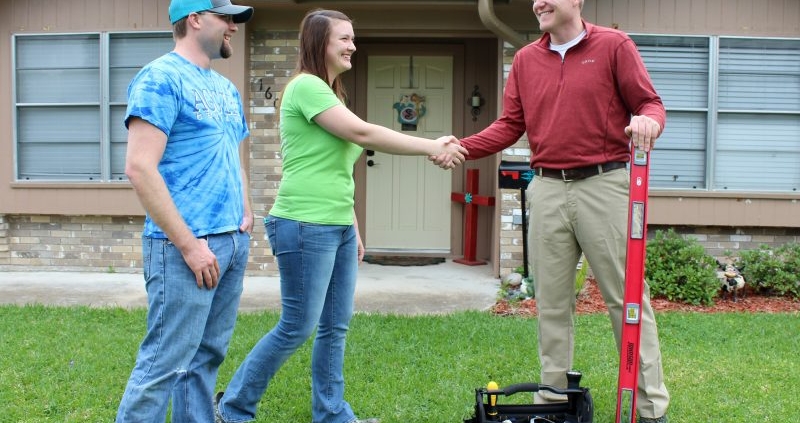Home Inspections Explained
What is a General Real Estate Inspection?
Home Inspections Explained: A home inspection is a visual, non-invasive assessment of a home’s major systems including; Foundation, Structure, Roof, Electrical, Plumbing, HVAC, Appliances and Drainage to:
- Reveal functional defects
- Inform the client of any health or safety hazards
- Inform client of expected general maintenance
- Make recommendations for remediation
The Home Inspection Process
A home inspection generally takes around 3 hours depending on the size of the house, type of foundation and issues found. During the assessment the home inspector usually examines the following:
Exterior components: The inspector checks everything from the quality of materials used to build the walls to the vegetation and grading surrounding the home. Special attention is given to the spacing of stairway/balcony railings and the leveling of the sidewalks & driveways which could become potential safety hazards.
Roof: The integrity of the roof is checked for any cracks and storm damage. Home inspectors often make use of telescopic ladders and high traction roof boots to have a thorough look at the roof.
Structural components: Apart from walls, floors and ceilings, the foundation and framework are also assessed thoroughly for defects and damages using a zip level to check elevations at corners.
Electrical system: AFCI and GFCI outlet protection devices are checked with AFCI/GFCI testers to ensure that the circuits are completely safe. Simple electrical testers and voltage indicators are also used to check the proper functioning of the electrical circuit. Electrical appliances that come with the purchase are also inspected.
Insulation: The quality of insulation directly impacts your electricity cost. So, inspectors pay extra attention to the insulation and ventilation of the attic and might recommend installation of additional insulation, if needed.
Windows: Windows play a significant role in maintaining good ventilation and fire safety.
Plumbing: The home inspector checks for leaks wherever water runs in the house. Thus, tools like moisture meters and infrared thermal imaging cameras are used to get a more accurate assessment. Smooth function of fixtures in the kitchen and bathrooms are tested. And, pipes are checked for anti-freeze protection.
Not everything on a property is checked under a basic home inspection which looks at features applicable to all homes. Common high value add-ons include:
- Termite/WDI: $95- $150
- Septic: $95
- Water Testing: $200 (includes delivering samples to lab and paying lab fees)
- Pool and Spa Inspection: $75
- Foundation Elevation Report: $150
A home inspection give you a clear idea of what you are investing your money on. And, the report can come in handy when you are negotiating the price of your property with the seller. Moreover, a detailed report of the inspection comes with vital recommendations which can transform any building into a safe haven for you.
Frequently Asked Questions
What is a home inspection?
Home inspection is the thorough assessment of the physical structure and the mechanical system of a house. The non-invasive inspection aims to detect various defects and damages in a house, especially, before you invest your money on it.
How much does a home inspection cost?
The cost of home inspections depend on the expertise of the home inspector and the size of the house. Usually, it can cost you $300 to $500 to get a house inspected by a seasoned expert. The price might be higher if you want to opt for some special inspections in addition to the standard ones. However, it is money well spent.
What is checked during a home inspection?
During a home inspection the inspector makes use of tools, technology and his expertise to assess:
- The structural integrity which includes the framework and foundation
- Exterior components including sidewalks, driveways and vegetation
- Roofing
- Electrical system
- Functioning of Vital electrical appliances
- Plumbing
- Insulation
- Ventilation
- Pest infestation
- Gas leaks
What to look for when hiring a home inspector?
The most important things to look for while hiring a home inspector are:
- A valid license from the State or Province
- Certification from a professional organization like The American Society of Home Inspectors (ASHI) and The International Association of Certified Home Inspectors (InterNACHI)
- Years of experience
- Online reviews
- A portfolio of sample inspection reports




